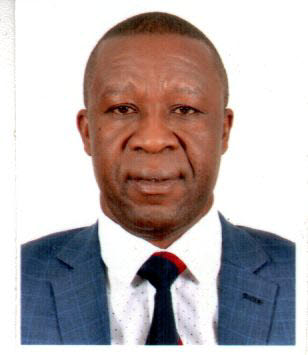Overview

- Act: Public Archives and Documentation Service Act, 1965
- Formed: 1965
- CEO: Francis G. Mwangi
The Kenya National Archives and Documentation Service (KNADS), established in 1965, plays a vital role in preserving the nation’s historical and cultural heritage. Its mandate includes safeguarding public records, providing access to archival materials, and supporting research initiatives. Additionally, KNADS engages in public education, advises government agencies on record management, and collaborates with local and international institutions. Through digitization projects and cultural heritage promotion, KNADS enhances public awareness of Kenya’s history and fosters appreciation for its diverse archival resources.
CEO: Francis G. Mwangi OGW
Francis G. Mwangi, Director of the Kenya National Archives and Documentation Service, is a seasoned professional in archival management and preservation. With a strong academic background in information science, he has extensive experience in managing historical records and cultural artifacts. Mwangi champions public awareness and access to Kenya’s rich heritage.

Functions
- Preservation of Records: KNADS is dedicated to safeguarding public records and archival materials to ensure their longevity. This includes employing various preservation techniques to maintain the physical integrity of documents, especially those that are rare or fragile.
- Access to Information: The service plays a vital role in enhancing public access to historical documents and government publications. This involves establishing user-friendly procedures and facilities to allow citizens, researchers, and scholars to obtain the information they seek.
- Research Support: KNADS provides assistance to researchers, historians, and the general public in locating and using archival materials. This support includes offering guidance on how to navigate the collections and access relevant documents for academic or personal inquiries.
- Documentation Services: The Council is responsible for systematically managing and organizing government documents. This includes cataloging and indexing materials to facilitate easy retrieval, thus ensuring that essential records are readily available for public use.
- Public Education: KNADS actively engages in public education campaigns to promote awareness of the importance of archives. These initiatives may include workshops, exhibitions, and outreach programs aimed at schools and community organizations to highlight the value of preserving history.
- Advisory Role: The service provides expert advice to government ministries and agencies regarding best practices in record management and archival preservation. This guidance helps ensure that public records are kept in accordance with national standards and policies.
- Digitization Initiatives: KNADS undertakes projects to digitize physical records, making them accessible online. This initiative not only preserves fragile documents but also broadens access to historical materials for a global audience.
- Cultural Heritage Promotion: The Council is instrumental in promoting Kenya’s rich cultural heritage through the preservation and exhibition of historical documents. By showcasing these materials, KNADS fosters a deeper appreciation of the nation’s history and identity.
- Collaboration with Institutions: KNADS collaborates with local and international archival institutions to share best practices and enhance archival standards.
- This partnership facilitates the exchange of knowledge and resources, strengthening the overall archival landscape in Kenya.
- National Heritage Development: The service contributes to the development and implementation of policies that protect and promote the nation’s heritage.
- This includes participating in national discussions and initiatives that aim to preserve Kenya’s historical and cultural resources for future generations.
Important Links
Address & Contacts
- P.O. Box 49210-00100 Nairobi, Kenya.
- Archives Complex, Moi Avenue next to Ambassadeur Hotel
- PR8G+3C Nairobi
- info@archives.go.ke
- +254 722 509 212